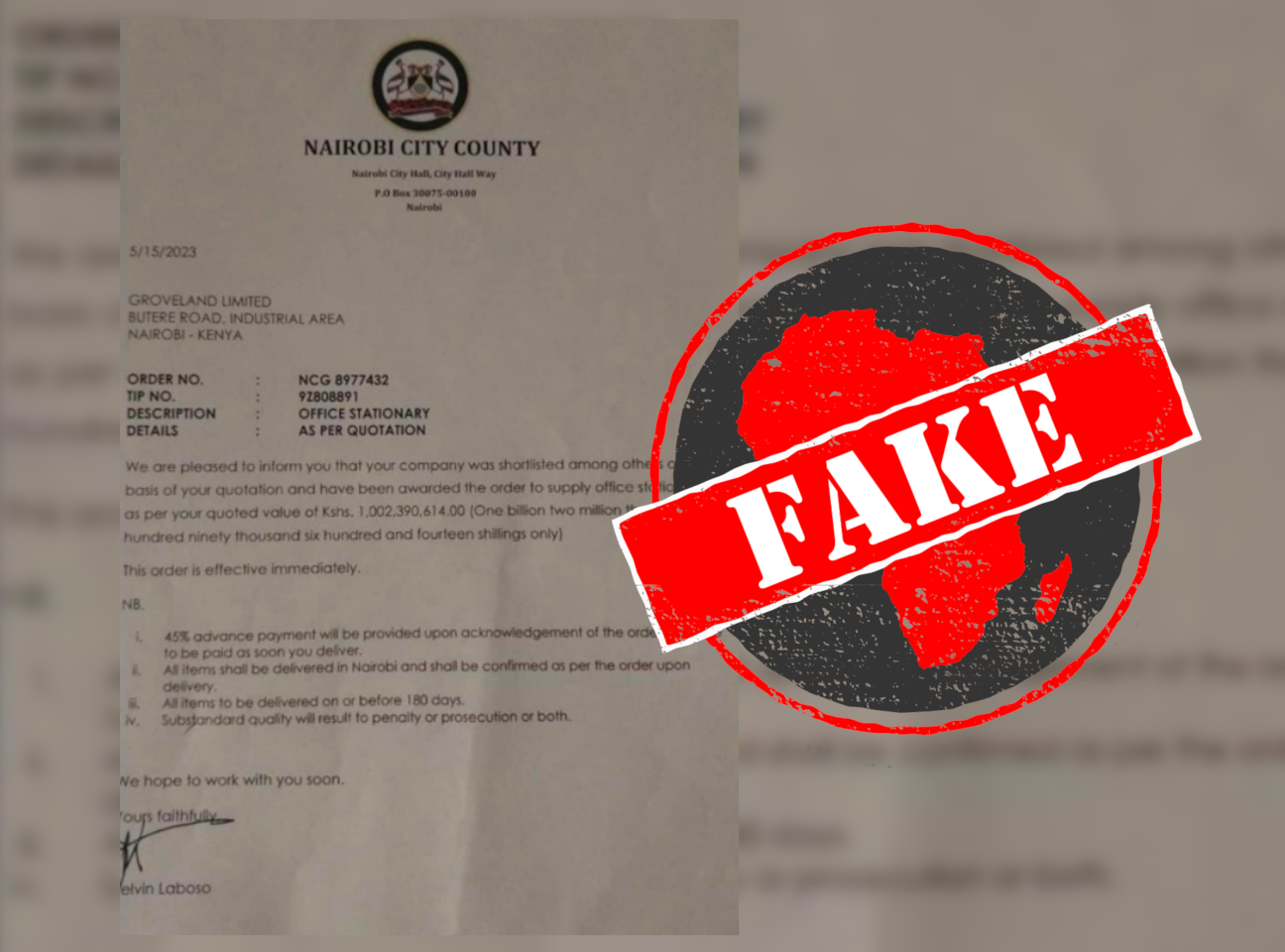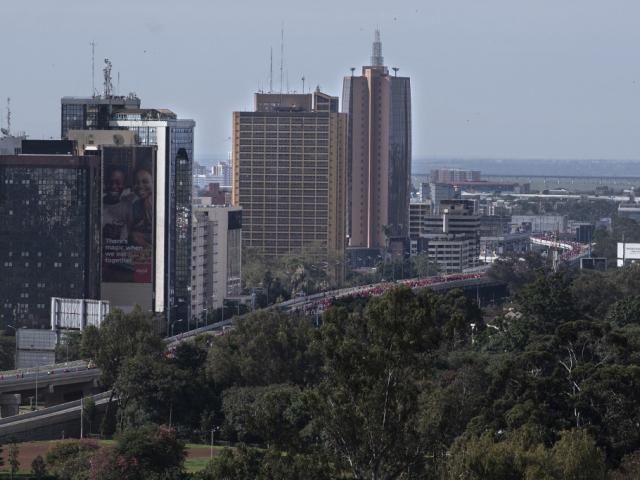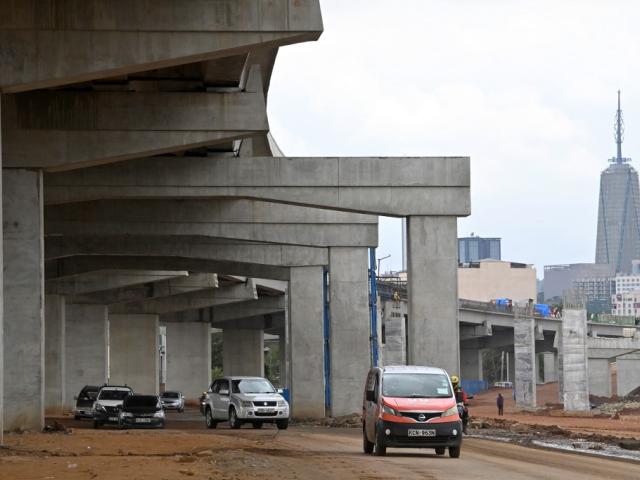IN SHORT: A document circulating on Facebook claims the Nairobi county office bought stationery from a company for more than KSh1 billion. But the county governor has dismissed it as fake.
“We are pleased to inform you that your company was shortlisted among others on the basis of your quotation and have been awarded the order to supply office stationary as per your quoted value of Kshs. 1,002,390,614.00,” reads what appears to be a document from the Nairobi city county office, circulating on Facebook.
Nairobi is the capital city of Kenya. The amount is about US$7.25 million.
The letterhead on the document appears to be that of Nairobi county and the document is dated 15 May 2023.
Nairobi county governor Johnson Sakaja has been criticised in the past for high spending. This is despite the fact that his office has outstanding bills , according to a September 2022 report by the Office of the Controller of Budget.
In a statement, dated 28 October 2022, Sakaja outlined a plan to settle these pending bills, which have been accumulating since 2016.
The document has also been shared here. But is it really from the Nairobi city county office? We checked.

Document is fake
Sakaja responded to a question about the authenticity of the document, through his official Twitter page. He said: “As fake as they come.”
A quick search of the Nairobi city county website also shows that its official documents look different and have different formatting, suggesting that the document in circulation is not authentic.
It is also unlikely that an official county document would contain the misspelt word “stationery”.
The document in circulation is fake and should be disregarded.
Republish our content for free
For publishers: what to do if your post is rated false
A fact-checker has rated your Facebook or Instagram post as “false”, “altered”, “partly false” or “missing context”. This could have serious consequences. What do you do?
Click on our guide for the steps you should follow.
Publishers guideAfrica Check teams up with Facebook
Africa Check is a partner in Meta's third-party fact-checking programme to help stop the spread of false information on social media.
The content we rate as “false” will be downgraded on Facebook and Instagram. This means fewer people will see it.
You can also help identify false information on Facebook. This guide explains how.




Add new comment